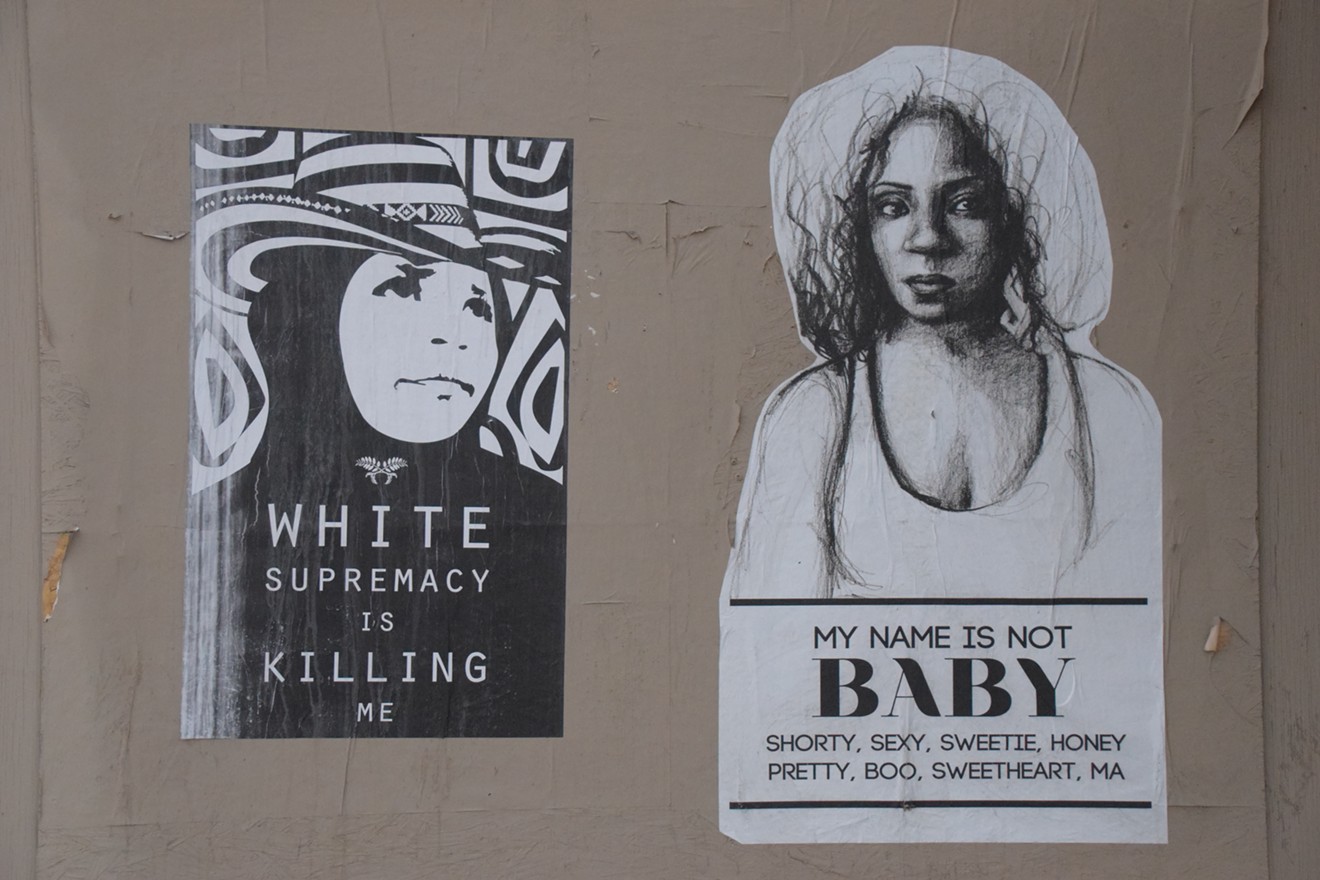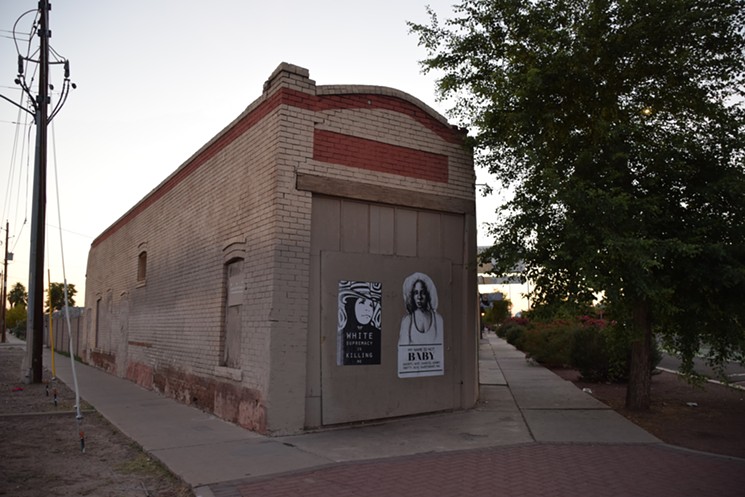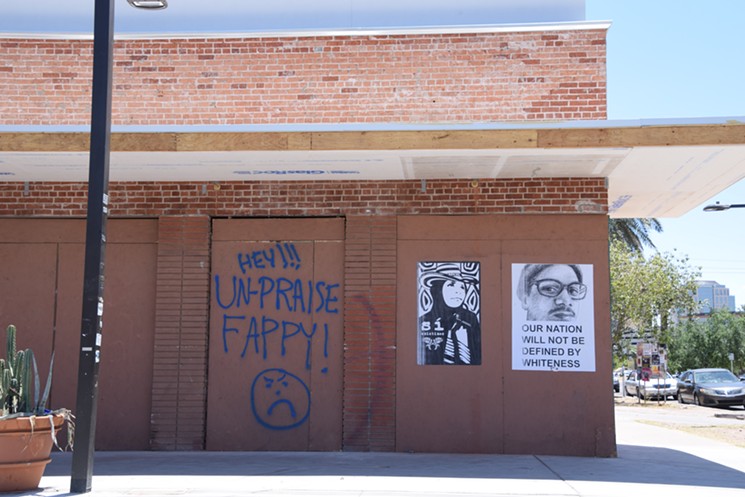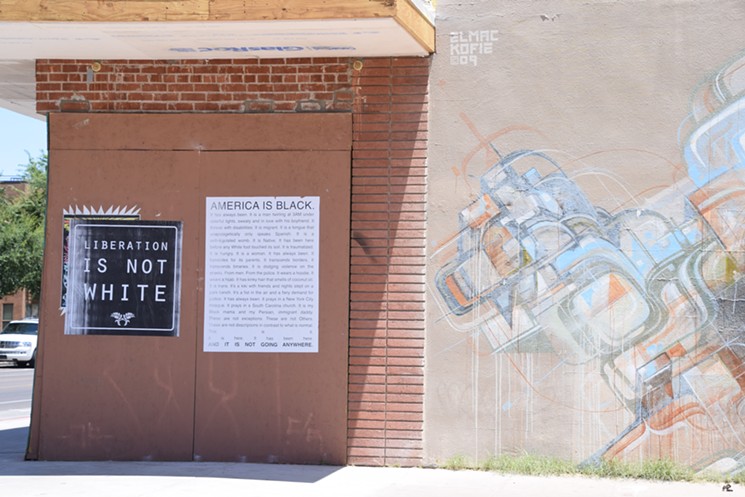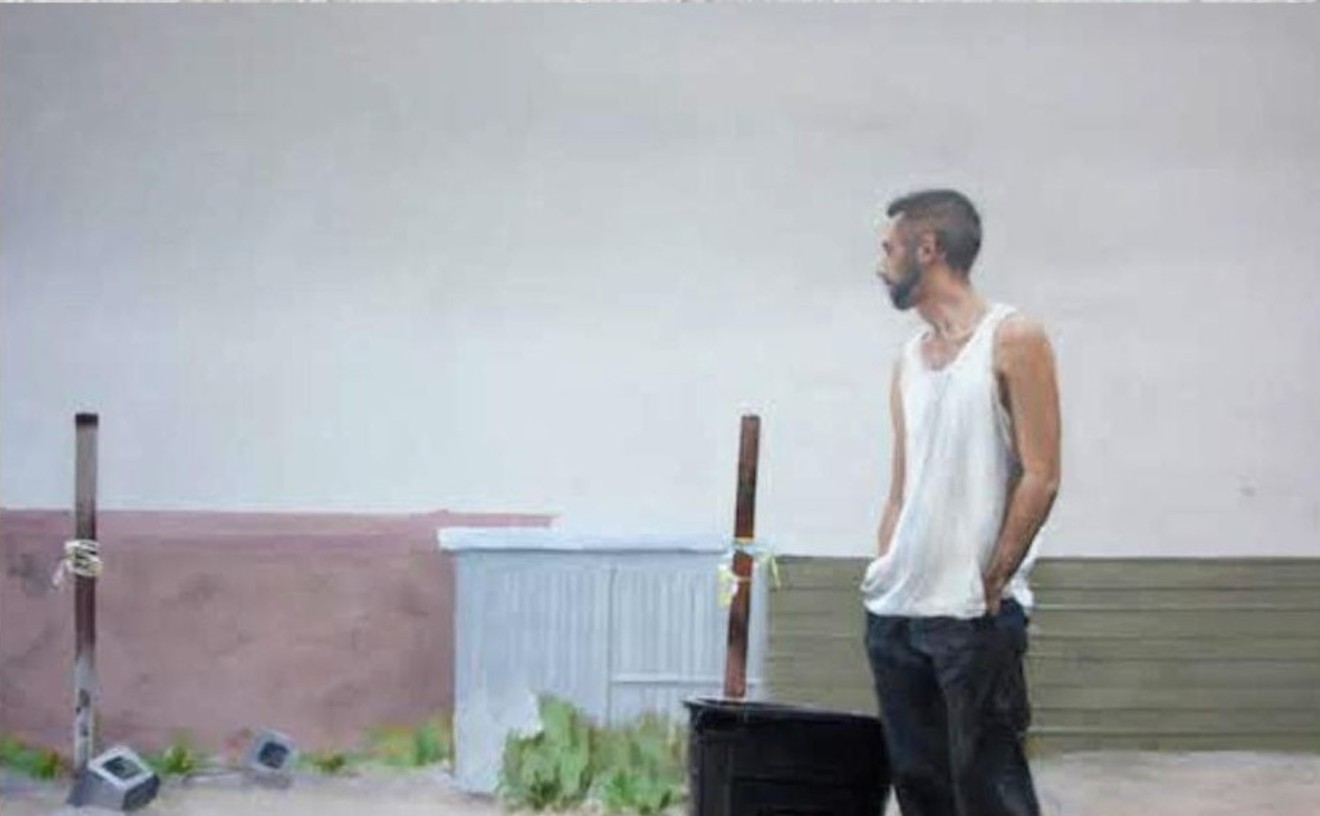“White supremacy is killing me.”
The saying appears on one of several posters recently put up in downtown Phoenix. They're part of a project called When Women Disrupt.
It's the brainchild of three women artists of color.
Tatyana Fazlalizadeh is a Brooklyn-based visual artist, Jessica Sabogal is a Colombian-American street artist, and Melinda James is a filmmaker focused on social justice. Sabogal and James are based in Oakland, California.
Together they're protesting racism, sexism, and xenophobia.
During late May and early June, the artists installed work in several cities, including Los Angeles, Phoenix, and Tucson. They also created work in Albuquerque, New Mexico, and El Paso, Texas.
“A lot of places in Arizona and New Mexico are pretty liberal, but there are still spots and spaces that aren’t,” Fazlalizadeh says. “We go to places where people voted mostly red, or people are mostly white.”
Together, they’re using art and activism to address white privilege and male privilege, along with bias against immigrants and the LGBTQ community.
“We did art at five or six places around Phoenix,” Fazlalizadeh says. The locations include the Roosevelt Row and Grand Avenue districts. “We asked a few people who are involved in Phoenix where our work might be relevant,” she says.
They put one “White Supremacy is Killing Me” poster, featuring the image of a woman of color, on an abandoned building at the corner of Polk Street and Ninth Avenue.
(Just a few blocks away, there’s an anti-Donald Trump billboard created by California artist Karen Fiorito, who implies a white supremacy connection by including two dollar signs that resemble swastikas on either side of the President's face.)
Next to the anti-white supremacy poster, they put a piece bearing the image of a black woman that reads “My Name is Not Baby.” It’s also part of a project called Stop Telling Women to Smile, launched by Fazlalizadeh several years ago.
The trio also installed four posters on the Flowers building at Roosevelt and Fifth streets. The posters went up near an iconic mural by internationally renowned street artists El Mac and Augustine Kofie. El Mac’s murals often spotlight people of color and others marginalized by society.
The building is part of a controversial development called The Blocks of Roosevelt Row.
After Chandler-based Desert Viking bought the Flowers building, several art studios once located there were forced to relocate. Lotus Contemporary Art moved to Scottsdale and Five15 Arts found a temporary home at Phoenix Center for the Arts.
Early renderings for The Blocks showed El Mac’s mural as the backdrop for an outdoor patio that rendered it inaccessible to the public. El Mac took to social media to express his concerns, but it’s unclear at this point whether the developer has changed its design plans.
Desert Viking relies heavily on street art imagery to market The Blocks of Roosevelt Row on its website and social media. Yet actual street art doesn’t fare all that well there.
The When Women Disrupt posters on the Flowers building were defaced within a couple of days. In some cases, imagery was left intact.
“People often tear off the words and leave the faces,” Fazlalizadeh says. “It’s offensive because it breaks apart our artwork.”
As of Monday, June 19, just a single black and white poster of a Latino woman was still up at the Flowers building.
But that hasn’t dissuaded the artists.
“All three of us are processing what we did, and thinking about how to do it again in a bigger way,” Fazlalizadeh says. “We’re going to do a well-rounded, robust program with a website, zine, and public art installations.”
They’ve already documented their first road trip, through social media posts and video footage. Their "Artists on the Move: When Women Disrupt" video on YouTube includes footage of the artists installing posters in Roosevelt Row.
“We want to spark conversations,” Fazlalizadeh says of their work. “We want to hold up a mirror, to make people consider how they’re complicit in racist society.”
But they also want something more.
“As artists we’re trying to offer our skills and talent to a movement,” Fazlalizadeh says. “We want change to happen, and we want to create a sense of urgency."
Correction: An earlier version of this post incorrectly referred to When Women Disrupt as Women Who Resist. New Times regrets the error.
[
{
"name": "Air - MediumRectangle - Inline Content - Mobile Display Size",
"component": "18478561",
"insertPoint": "2",
"requiredCountToDisplay": "2"
},{
"name": "Editor Picks",
"component": "16759093",
"insertPoint": "4",
"requiredCountToDisplay": "1"
},{
"name": "Inline Links",
"component": "17980324",
"insertPoint": "8th",
"startingPoint": 8,
"requiredCountToDisplay": "7",
"maxInsertions": 25
},{
"name": "Air - MediumRectangle - Combo - Inline Content",
"component": "16759092",
"insertPoint": "8th",
"startingPoint": 8,
"requiredCountToDisplay": "7",
"maxInsertions": 25
},{
"name": "Inline Links",
"component": "17980324",
"insertPoint": "8th",
"startingPoint": 12,
"requiredCountToDisplay": "11",
"maxInsertions": 24
},{
"name": "Air - Leaderboard Tower - Combo - Inline Content",
"component": "16759094",
"insertPoint": "8th",
"startingPoint": 12,
"requiredCountToDisplay": "11",
"maxInsertions": 24
}
]

